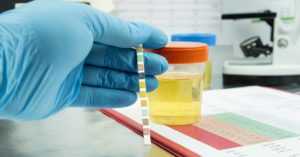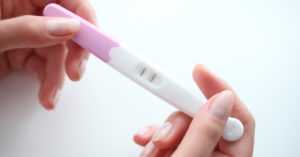Did you ever wonder that why do gynecologists do urine tests? It may sound awkward, but your urine is the best indicator of what’s going on in your body. A urine test may not be a painful test, but it’s not comfortable either. In the end, the minor (and primarily psychological) discomfort of a urine test pales into insignificance to the diseases it can save you from.
Here are some of the reasons why do gynecologists do a urine test and what they mean:
It’s all about quality:
The appearance and smell of your urine reveal a lot about how hydrated you are, the release of harmful compounds in your body, and whether or not you have urinary system disorders. Even metabolic conditions like liver disease and diabetes can be detected using a urine test.


Urine Color and its clarity:
Urine color and appearance can tell about your diet, your hydration level, and your overall health. Some shades and qualities are listed below that can help indicate some severe diseases:
- Small amounts of dark urine indicate dehydration or kidney problems.
- Urine that is flaky or cloudy indicates a urinary tract infection (UTI)
- Blood in urine suggests you’ll require more testing (unless you’re a woman on her menstrual cycle, in which case you’ll get a pass).
- Have you started taking vitamin B or other vitamins as a supplement? It appears to be the case of bright yellow urine.
- Someone has been eating dark berries or beets, which are bright pink, crimson, or red-brown. If your urine is clear, you’re fine; if it’s dark, you may be looking for signs of a health concern.
Urine color will tell a lot about your health issues and help in diagnosing any health problems. Moreover, gynecologists can use these indicators to run specific medical tests if they detect serious health concerns.
Urine smell:
Do you know what asparagus can do to your Eau de pee? Asparagusic acid in asparagus produces a variety of sulfurous metabolites that give your pee a terrible odor. The odor can be detected 15 minutes after eating asparagus and can remain for up to 14 hours.
A bacterial infection (E.coli) causes a nasty odor; a lack of proper diet or fasting can cause a sweet fruity smell.
Indicating deficiencies and excess nutrients:
No one can tell the exact health issues by just looking at them. Chemical analysis in laboratories can give us a more detailed picture of what’s going on inside our bodies.
The following indicators are tested in urine:
- The pH level indicates the existence of kidney stones or infections.
- Protein in the urine could indicate a kidney infection.
- Sugar is a diabetic symptom.
- Nitrite – nitrite might suggest a bacterial illness.
- Ketones are a form of ketone that can indicate the presence of diabetes (or that your body is keto-adapted a relatively new use)
- Bilirubin is a type of blood that might indicate liver damage or disease.
- Urobilinogen – suggests bile duct obstruction, hepatic infection, or liver injury (lousy news for digestion)
- A bladder infection, kidney infection/stones, or sickness can all be indicated by red blood cells.
- White blood cells can suggest bacterial illness.
Now that you have an idea of what urine can tell about your health. Suppose your urine color or odor indicates any of the symptoms mentioned above, or you are having issues with your urinary tract. In that case, I suggest you visit a gynecologist as soon as possible and save yourself from a severe problem.
Urine test in pregnancy:
Make an appointment with a gynecologist as soon as possible if you suspect you’re pregnant. Although many home pregnancy tests are accurate, the potential of having a false-positive or false-negative result always exists. You should visit gynecologists to find out if you’re pregnant and obtain more detailed information. Seeing a doctor early in your pregnancy will benefit both you and your baby.


How does a gynecologist determine if a woman is pregnant? Human chorionic gonadotropin, or hCG, often known as the pregnancy hormone, is produced when a fertilized egg deposits itself in your uterus and is detected by both over-the-counter pregnancy tests and urine tests performed at a doctor’s office. This typically occurs six to seven days after the egg and sperm have merged.
One of the advantages of seeing a gynecologist if you think you might be pregnant is that the doctor can confirm your pregnancy with blood tests and pelvic ultrasound and uncover any potential concerns early so they can be appropriately addressed.
Both urine and blood tests can determine whether or not you are genuinely pregnant. The first test looks for the pregnancy hormone hCG in your urine, while the second looks at your blood. For the blood test, you’ll need to see a gynecologist. Urine pregnancy tests (also known as UPTs) are usually the initial step in discovering a pregnancy and can be done in your doctor’s office.
Your gynecologists can use a UPT, a blood test, and a sonogram (a test done during pregnancy that uses reflected sound waves to create a picture of a fetus) to determine if you are pregnant and how far along you are in pregnancy.
FAQs
What does the Obgyn urine test for?
Glucose, protein, ketones, and bilirubin are all detected in this test. The nurse will also take note of the look of the urine and any strange odors.
What can a doctor tell from a urine sample?
Doctors order urine tests to identify and treat various illnesses, including kidney disease, liver disease, diabetes, and infections. Urine testing is also used to screen persons for illegal drug usage and determine whether they are pregnant.
Why does the doctor send urine samples to the lab?
Your doctor or another healthcare practitioner may request a urine sample to help identify or rule out particular health concerns. Urine is made up of waste items that have been filtered from the body. If there is anything unexpected in the sample, it could indicate an underlying health condition.
Book an appointment now, to answer all your queries. You can book an appointment with the top gynecologists in Karachi through Marham by calling at Marham helpline: 0311-1222398 or by online booking facility through the website or Marham mobile app.
Can’t Find The App?
Android Users:
https://play.google.com/store/apps/details?id=controllers.marham.marhammed&hl=en
Drop a review for us at Playstore if you’ve had a good experience!
iPhone Users:
https://apps.apple.com/pk/app/marham-find-a-doctor/id1095243102
Stay Home. Stay Safe!

